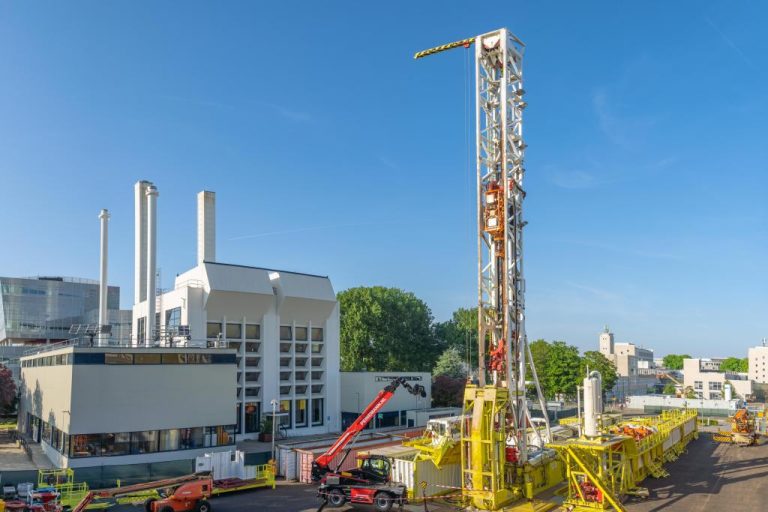Geothermal drilling on campus step closer
The Leeghwaterstraat has been partially blocked off since the end of May for the purpose of the Geothermal Project. Steel structures with barges, containers and a tall lattice tower have been erected. They are preparations for drilling for hot water to a depth of 2.5 kilometres.

(Photo: Thijs van Reeuwijk)
The first work started here six months ago with a smaller installation used to install a supply and discharge of rinse water and a jacket to stabilise the boreholes. Now a larger rig has been installed for the proper job. The drilling of the two boreholes for supply and discharge of hot water from the deep is expected to take six months. In about a year (mid-2024), project leader Dr Phil Vardon (Faculty of Civil Engineering and Geosciences) expects the first hot water at the surface.
The Delft Geothermal Project (DAP) was founded in 2007. The foundations has so far organised three scientific symposiums on the feasibility of geothermal heat for the campus (and surrounding area). Another symposium is scheduled for 21 June.
Do you have a question or comment about this article?
j.w.wassink@tudelft.nl

Comments are closed.